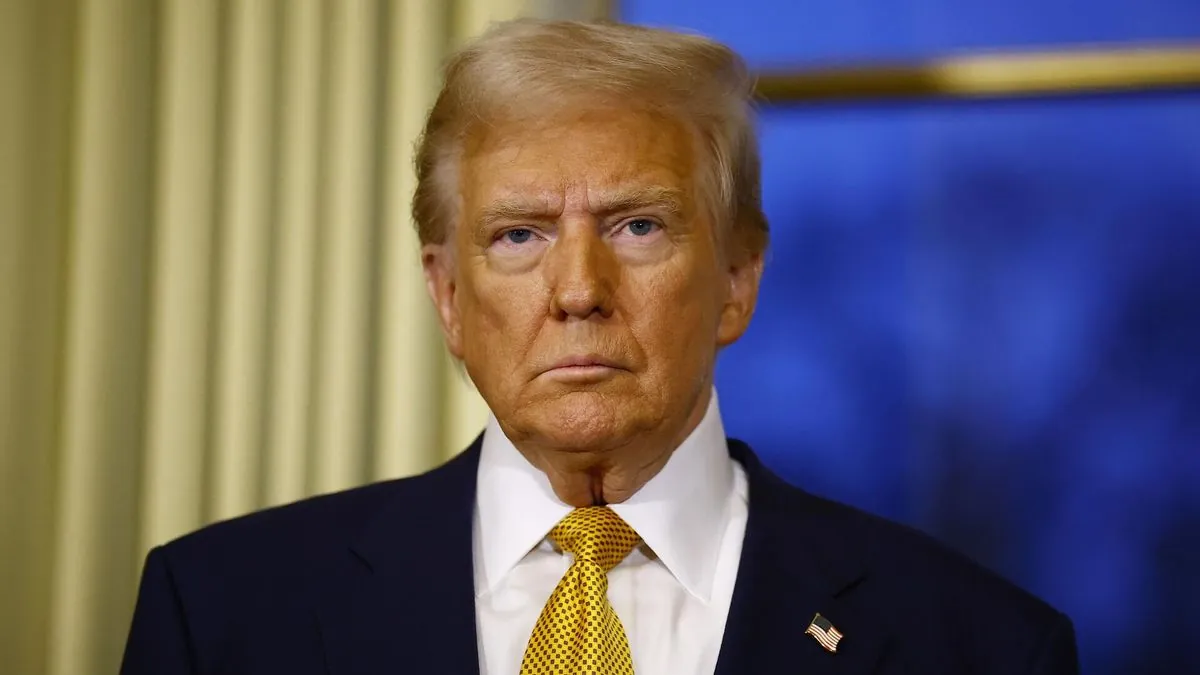Donald Trump has once again sparked intense debate with his strong stance on transgender issues, vowing to eliminate what he calls “transgender lunacy” immediately upon taking office.
His recent statements at the AmericaFest conference in Phoenix, Arizona, have amplified his agenda, which targets LGBTQ rights and sets a polarizing tone for his upcoming presidency.
A Promise to Overhaul Transgender Policies
Trump’s remarks in Phoenix left no room for ambiguity regarding his position on transgender rights. He declared his intention to issue executive orders that would ban transgender individuals from serving in the military and eliminate their presence in schools.
Emphasizing his belief in the binary concept of gender, Trump proclaimed that his administration would establish a federal policy recognizing only two genders, male and female.
These promises align with his broader critique of gender-affirming care and transgender participation in sports. Trump’s comments on “keeping men out of women’s sports” reflect a growing Republican-led push against transgender athletes competing in categories aligned with their gender identity.
Read : Elon Musk Is Not Going to Be President, He Wasn’t Born in the US: Trump
Trump also condemned gender-affirming medical treatments for minors, framing them as “child sexual mutilation.” These proposals are consistent with legislative efforts in several Republican-controlled states that have sought to restrict access to gender-affirming care. His administration would likely bolster these policies at a federal level, intensifying the divide between conservative and progressive states.
Trump speaking at AmericaFest “We’re going to stop the transgender lunacy. Under the Trump Administration there are only two genders: MALE and FEMALE.
— Natism (@his4Everz) December 22, 2024
pic.twitter.com/oEH2BZhaL6
The rhetoric used by Trump resonates deeply with conservative voters who view gender diversity as a cultural and moral threat. However, his remarks also drew sharp criticism from LGBTQ advocacy groups and allies, who argue that such policies violate fundamental human rights and endanger vulnerable communities.
Polarizing the Political Landscape
The transgender rights debate has been a flashpoint in American politics for years, and Trump’s return to the presidency promises to escalate this polarization.
While progressive states have worked to expand access to gender-affirming care and inclusive education, conservative states have moved in the opposite direction, banning certain medical procedures and restricting discussions of LGBTQ topics in schools.
One of Trump’s proposed policies, the removal of books addressing transgender issues from public and school libraries, would deepen the cultural divide. Advocates for free speech and LGBTQ rights argue that such measures suppress critical conversations and marginalize already vulnerable groups.

Trump’s stance also raises questions about its impact on the military. During his first term, his administration introduced a ban on transgender individuals serving openly, citing concerns about readiness and medical costs.
Reinstating this policy would reverse efforts made under the Biden administration to create an inclusive environment for all service members.
Trump’s rhetoric about transgender issues is part of a broader strategy to consolidate his conservative base. By framing his policies as a defense of traditional values, he seeks to mobilize support among right-wing voters who feel alienated by progressive cultural shifts. However, critics argue that this approach exacerbates division and undermines America’s commitment to equality.
Broader Promises and Controversial Proposals
Trump’s speech in Phoenix extended beyond transgender issues, touching on a range of topics that align with his America First agenda. He promised to tackle drug cartels by designating them as foreign terrorist organizations, a move he claimed would dismantle their operations on American soil.
Critics have raised concerns about the practical and diplomatic implications of such a policy, particularly in light of his previous interactions with Mexican leaders.
Another contentious promise was Trump’s vow to renegotiate the terms governing the Panama Canal. He accused Panamanian authorities of treating the U.S. unfairly and suggested reclaiming control of the canal if his demands were not met. This proposal echoes the nationalist rhetoric that characterized his first term and could strain relations with Central American countries.

On the international front, Trump pledged to end the war in Ukraine and bring peace to the Middle East. However, he provided few details on how these ambitious goals would be achieved. Critics question the feasibility of such promises, given the complexity of the conflicts involved and the broader geopolitical implications.
Domestically, Trump’s promise to launch the largest deportation operation in American history reflects his hardline stance on immigration. While this rhetoric appeals to his base, it raises ethical and logistical questions about the treatment of migrants and the impact on immigrant communities.
A Divided Nation
Trump’s polarizing rhetoric on transgender issues and other policy areas highlights the deep divisions within American society. While his supporters view his promises as a defense of traditional values and national sovereignty, his critics see them as an attack on human rights and democratic principles.
The LGBTQ community, in particular, faces heightened uncertainty under a Trump presidency. Advocates warn that his proposed policies could lead to increased discrimination and violence against transgender individuals, further marginalizing an already vulnerable group.
As Trump prepares to take office, the stakes for LGBTQ rights, immigration policy, and international relations are higher than ever. His presidency promises to be a battleground for competing visions of America’s future, with profound implications for the nation and the world.

